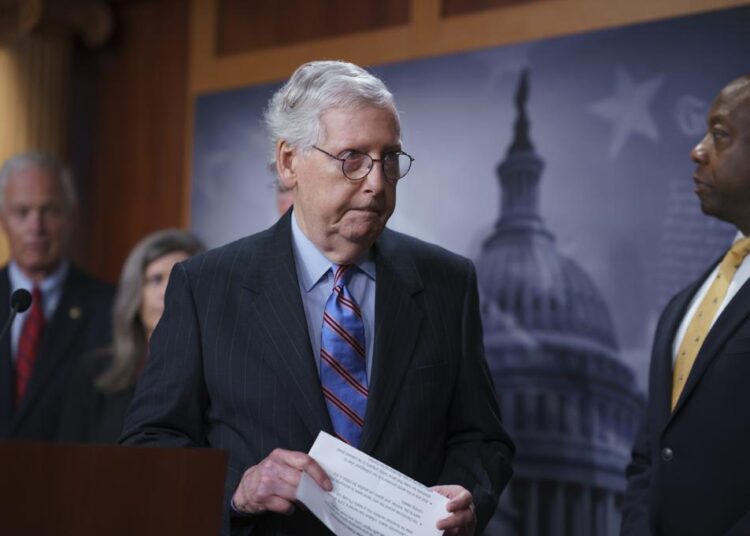WASHINGTON — Senate Republicans rejected an effort to begin debate on the big infrastructure deal that a bipartisan group of senators brokered with President Joe Biden, but pressure was mounting as supporters insisted they just needed more time before another vote possibly next week, AP reported.
Senate Majority Leader Chuck Schumer, D-N.Y., had scheduled the procedural vote Wednesday to nudge along negotiations that have dragged for weeks. But Republicans mounted a filibuster, saying the bipartisan group still had a few unresolved issues and needed to review the final details. They sought a delay until Monday.
“We have made significant progress and are close to a final agreement,” the bipartisan group of senators, 11 Republicans and 11 Democrats, said in a joint statement after the vote. The senators said they were optimistic they could finish up “in the coming days.”
The nearly $1 trillion measure over five years includes about $579 billion in new spending on roads, broadband and other public works projects — a first phase of Biden’s infrastructure agenda, to be followed by a much broader $3.5 trillion measure from Democrats next month.
Biden’s top priority is at a critical juncture, posing a test of his ability to forge bipartisan cooperation in Washington and make investments the White House views as crucial to the nation’s ability to pull out of the COVID-19 crisis and spur economic growth.
The president traveled to Ohio later Wednesday to promote his economic policies, and was calling his infrastructure agenda a “blue-collar blueprint for building an American economy back.” He has said that Americans overwhelmingly support his plan.
In a CNN town hall, Biden also talked up the benefits of the bipartisan framework, saying, “It’s a good thing and I think we’re going to get it done.” He also made passing reference to the dangerously outdated Brent Spence Bridge across the Ohio River, saying they’ll “fix that damn bridge of yours.”
At another point, Biden was asked by a union electrician if it was possible to bring Congress together to pass an infrastructure bill that would help the region replace the bridge.
“The answer is, absolutely, positively, yes,” the president said.
The party-line vote blocked the bill from advancing, 51-49, and fell far short of the 60 votes required under Senate rules. Schumer switched his vote to “no” at the end, a procedural step that would allow him to move to quickly reconsider.






Discussion about this post